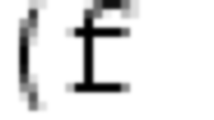Abstract
We propose a new deductive model checking methodology where narrowing-based logical model checking of symbolic states specified as disjunctions of constrained patterns is synergistically combined with inductive theorem proving to discharge inductive verification conditions. An obvious synergy is to use an inductive theorem prover in automated mode as an oracle to help logical model checking reach a fixpoint. But this is not the only possible synergy. In this paper we focus instead on a new deductive model checking methodology to verify invariants—including inductive invariants—of infinite-state systems, where logical model checking automates large parts of the verification effort with the help of an inductive theorem prover as an oracle, and the remaining tasks are left to the inductive theorem prover used in interactive mode. We demonstrate this methodology by means of Maude examples using two tools working in tandem: the DM-Check symbolic model checker, and the NuITP inductive theorem prover.
S Escobar, J. Sapiña and R. López-Rueda have been partially supported by the grant PID2021-122830OB-C42 funded by MCIN/AEI/10.13039/501100011033 and ERDF A way of making Europe, and by the grant CIPROM/2022/6 funded by Generalitat Valenciana. S Escobar and K. Bae have been partially supported by the NATO Science for Peace and Security Programme project SymSafe (grant number G6133). J. Meseguer, S Escobar, J. Sapiña and R. López-Rueda have been partially supported by INCIBE’s Chair funded by the EU-NextGenerationEU through the Spanish government’s Plan de Recuperación, Transformación y Resiliencia. K. Bae has been partially supported by the National Research Foundation of Korea (NRF) grants funded by the Korean government (2021R1A5A1021944 and RS-2023-00251577).
Access this chapter
Tax calculation will be finalised at checkout
Purchases are for personal use only
Similar content being viewed by others
Notes
- 1.
- 2.
A disjoint E-unifier of \(u=v\) is an E unifier of \(u'=v'\), with \(u'\) (resp. \(v'\)) a variable renaming of u (resp. v) such that \(u'\) and \(v'\) share no variables.
- 3.
A rewrite theory \(\mathcal {R}\) is topmost iff it has a sort \( State \) such that: (i) if \(f(t_{1},\ldots ,t_{n})\) has sort \( State \), none of the \(t_{i}\), \(1 \le i \le n\) has sort \( State \), and (ii) for any rewrite rule \(l \rightarrow r \; if \; \varphi \) in \(\mathcal {R}\), l and r have sort \( State \). Many common rewrite theories such as, e.g., actor systems, can be transformed into semantically equivalent topmost ones.
- 4.
\(\mathcal {R}= (\varSigma ,E \cup B,R)\) is admissible if \((\varSigma ,E \cup B)\) is ground confluent and the rules R are ground coherent w.r.t. the oriented equations \(\vec{E}\) modulo B, i.e., for each \(t \in T_{\varSigma , State }\) if \(t \rightarrow _{R,B} t'\), then there exists a \(u'\) such that \(t!_{\vec{E},B} \rightarrow _{R,B}u'\) and \(t'!_{\vec{E},B} =_{B} u'!_{\vec{E},B}\).
- 5.
Given a \(\varSigma \)-algebra \(\mathbb {A}\) and a subsignature \(\varSigma '\) with same poset of sorts, the reduct \(\mathbb {A}|_{\varSigma '}\) is the \(\varSigma '\)-algebra with same sorts as \(\mathbb {A}\) and same operations as \(\mathbb {A}\) for each \(f\in \varSigma '\).
- 6.
One case where this does not happen is deadlock-freedom, where a proof by the positive method is easier: see Sect. 4 for an example.
- 7.
At present, \(\sigma \) applies a collection of NuITP formula simplification rules.
- 8.
For example, in [25] a queue is defined using an empty list nil and a non-associative list constructor _::_, with auxiliary functions such as append defined recursively. Five predicates are declared in [25], and there are many lemmas about interactions between these predicates and the append function. We refer to [25] for further details.
- 9.
It is possible to simplify some of these rules; for example, drop-1a and drop-1b can be merged into a single rule. However, to ensure a fair comparison, we use the same rewrite rules as [25], except for the use of associative operators.
References
Bae, K., Escobar, S., Meseguer, J.: Abstract logical model checking of infinite-state systems using narrowing. In: RTA 2013. LIPIcs, vol. 21, pp. 81–96. Schloss Dagstuhl - Leibniz-Zentrum fuer Informatik (2013)
Bae, K., Meseguer, J.: Infinite-state model checking of LTLR formulas using narrowing. In: Proceedings of WRLA 2014. LNCS, vol. 8663, pp. 113–129. Springer, Berlin (2014)
Bae, K., Meseguer, J.: Predicate abstraction of rewrite theories. In: RTA-TLCA. Lecture Notes in Computer Science, vol. 8560, pp. 61–76. Springer, Berlin (2014)
Bartlett, K.A., Scantlebury, R.A., Wilkinson, P.T.: A note on reliable full-duplex transmission over half-duplex links. Commun. ACM 12(5), 260–261 (1969)
Dershowitz, N., Jouannaud, J.P.: Rewrite systems. In: van Leeuwen, J. (ed.) Handbook of Theoretical Computer Science, vol. B, pp. 243–320. North-Holland (1990)
Durán, F., Escobar, S., Meseguer, J., Sapiña, J.: NuITP alpha 21—an inductive theorem prover for maude equational theories. Available at https://nuitp.webs.upv.es/
Durán, F., Eker, S., Escobar, S., Martí-Oliet, N., Meseguer, J., Rubio, R., Talcott, C.L.: Programming and symbolic computation in Maude. J. Log. Algebraic Methods Program. 110 (2020)
Durán, F., Eker, S., Escobar, S., Martí-Oliet, N., Meseguer, J., Rubio, R., Talcott, C.L.: Equational unification and matching, and symbolic reachability analysis in Maude 3.2. In: Blanchette, J., Kovács, L., Pattinson, D. (eds.) Automated Reasoning—11th International Joint Conference, IJCAR 2022, Haifa, Israel, August 8–10, 2022, Proceedings. Lecture Notes in Computer Science, vol. 13385, pp. 529–540. Springer, Berlin (2022). https://doi.org/10.1007/978-3-031-10769-6_31
Escobar, S., Meadows, C., Meseguer, J.: Maude-NPA: cryptographic protocol analysis modulo equational properties. In: Foundations of Security Analysis and Design V, FOSAD 2007/2008/2009 Tutorial Lectures, LNCS, vol. 5705, pp. 1–50. Springer, Berlin (2009)
Escobar, S., López-Rueda, R., Sapiña, J.: Symbolic analysis by using folding narrowing with irreducibility and SMT constraints. In: Artho, C., Ölveczky, P.C. (eds.) Proceedings of the 9th ACM SIGPLAN International Workshop on Formal Techniques for Safety-Critical Systems, FTSCS 2023, Cascais, Portugal, 22 October 2023. pp. 14–25. ACM (2023). https://doi.org/10.1145/3623503.3623537
Escobar, S., Meseguer, J.: Symbolic model checking of infinite-state systems using narrowing. In: Proceedings of RTA. Lecture Notes in Computer Science, vol. 4533, pp. 153–168 (2007)
Escobar, S., Sasse, R., Meseguer, J.: Folding variant narrowing and optimal variant termination. J. Algebraic Logic Program. 81, 898–928 (2012)
Futatsugi, K.: Advances of proof scores in CafeOBJ. Sci. Comput. Program. 224, 102893 (2022). https://doi.org/10.1016/J.SCICO.2022.102893
Goguen, J., Meseguer, J.: Order-sorted algebra I: equational deduction for multiple inheritance, overloading, exceptions and partial operations. Theoret. Comput. Sci. 105, 217–273 (1992)
Lucas, S., Meseguer, J.: Normal forms and normal theories in conditional rewriting. J. Log. Algebr. Meth. Program. 85(1), 67–97 (2016)
Meseguer, J., Thati, P.: Symbolic reachability analysis using narrowing and its application to the verification of cryptographic protocols. J. Higher-Order Symbolic Comput. 20(1–2), 123–160 (2007)
Meseguer, J.: Conditional rewriting logic as a unified model of concurrency. Theoret. Comput. Sci. 96(1), 73–155 (1992)
Meseguer, J.: Membership algebra as a logical framework for equational specification. In: Proceedings of WADT’97. pp. 18–61. Springer LNCS 1376 (1998)
Meseguer, J.: Variant-based satisfiability in initial algebras. Sci. Comput. Program. 154, 3–41 (2018)
Meseguer, J.: Generalized rewrite theories, coherence completion, and symbolic methods. J. Log. Algebraic Methods Program. 110 (2020)
Ogata, K., Futatsugi, K.: Proof scores in the OTS/CafeOBJ method. In: Najm, E., Nestmann, U., Stevens, P. (eds.) Formal Methods for Open Object-Based Distributed Systems, 6th IFIP WG 6.1 International Conference, FMOODS 2003, Paris, France, November 19.21, 2003, Proceedings. Lecture Notes in Computer Science, vol. 2884, pp. 170–184. Springer, Berlin (2003). https://doi.org/10.1007/978-3-540-39958-2_12
Ogata, K., Futatsugi, K.: Simulation-based verification for invariant properties in the OTS/CafeOBJ method. In: Boiten, E.A., Derrick, J., Smith, G. (eds.) Proceedings of the BCS-FACS Refinement Workshop, REFINE@IFM 2007, Oxford, UK, July 2007. Electronic Notes in Theoretical Computer Science, vol. 201, pp. 127–154. Elsevier (2007). https://doi.org/10.1016/J.ENTCS.2008.02.018
Ogata, K., Futatsugi, K.: Theorem proving based on proof scores for rewrite theory specifications of OTSs. In: Iida, S., Meseguer, J., Ogata, K. (eds.) Specification, Algebra, and Software - Essays Dedicated to Kokichi Futatsugi. Lecture Notes in Computer Science, vol. 8373, pp. 630–656. Springer, Berlin (2014). https://doi.org/10.1007/978-3-642-54624-2_31
Pnueli, A.: Deduction is forever (1999), invited talk at FM’99 avaliable online at cs.nyu.edu/pnueli/fm99.ps
Rocha, C., Meseguer, J.: Mechanical analysis of reliable communication in the alternating bit protocol using the Maude invariant analyzer tool. In: Specification, Algebra, and Software—Essays Dedicated to Kokichi Futatsugi. Lecture Notes in Computer Science, vol. 8373, pp. 603–629. Springer, Berlin (2014)
Rubio, R., Riesco, A.: Theorem proving for maude specifications using lean. In: Riesco, A., Zhang, M. (eds.) Formal Methods and Software Engineering—23rd International Conference on Formal Engineering Methods, ICFEM 2022, Madrid, Spain, October 24-27, 2022, Proceedings. Lecture Notes in Computer Science, vol. 13478, pp. 263–280. Springer, Berlin (2022). https://doi.org/10.1007/978-3-031-17244-1_16
Slagle, J.R.: Automated theorem-proving for theories with simplifiers commutativity, and associativity. J. ACM 21(4), 622–642 (1974)
Tran, D.D., Ogata, K.: IPSG: invariant proof score generator. In: Leong, H.V., Sarvestani, S.S., Teranishi, Y., Cuzzocrea, A., Kashiwazaki, H., Towey, D., Yang, J., Shahriar, H. (eds.) 46th IEEE Annual Computers, Software, and Applications Conferenc, COMPSAC 2022, Los Alamitos, CA, USA, June 27–July 1, 2022. pp. 1050–1055. IEEE (2022). https://doi.org/10.1109/COMPSAC54236.2022.00164
Author information
Authors and Affiliations
Corresponding author
Editor information
Editors and Affiliations
Rights and permissions
Copyright information
© 2024 The Author(s), under exclusive license to Springer Nature Switzerland AG
About this paper
Cite this paper
Bae, K., Escobar, S., López-Rueda, R., Meseguer, J., Sapiña, J. (2024). Verifying Invariants by Deductive Model Checking. In: Ogata, K., Martí-Oliet, N. (eds) Rewriting Logic and Its Applications. WRLA 2024. Lecture Notes in Computer Science, vol 14953. Springer, Cham. https://doi.org/10.1007/978-3-031-65941-6_1
Download citation
DOI: https://doi.org/10.1007/978-3-031-65941-6_1
Published:
Publisher Name: Springer, Cham
Print ISBN: 978-3-031-65940-9
Online ISBN: 978-3-031-65941-6
eBook Packages: Computer ScienceComputer Science (R0)




